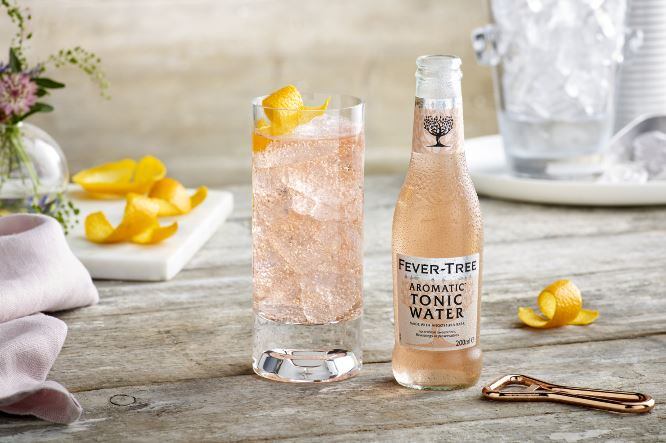Given that I spend most of my life writing about beer and cider, I bet you’ll never guess which drinks company has impressed me far more than any other so far in 2018.
OK, so by the time this article appears in print, beautifully laid out in the pages of The Morning Advertiser, the headline, intro and photo that are put together by the sub-editors and designers will probably give it away.
But still: no one is more surprised than I am that – without wishing to slight the many successful beer and cider brands that have been making a lot of noise this year – a tonic water manufacturer has proved itself the most notable brand of the year to date, and shows little sign of being overtaken.
Fever-Tree was founded in 2005, and has prospered on the back of the current gin craze. Polls suggest gin is now the UK’s most popular spirit, and if you’re paying over the odds for a premium gin, it makes sense that you want to feel you’re adding a suitable tonic to it.
But what’s so remarkable is that Fever-Tree’s success is outstripping that of gin itself. Gin sales may have doubled over the past six years, but Fever-Tree is worth more than WHSmith, Debenhams, the AA and Saga combined. In July, online business magazine Quartz pointed out that its rapid share price growth made Fever-Tree the best performing business in the UK.
But what I admire about Fever Tree the most is not their success per se, but the way they achieved it.
Sure, they made a premium product – everyone does these days. But once craft gin started booming, they appointed themselves the curators of the category. Gin is bewildering. There’s a constant barrage of eye-catching new brands making extravagant claims about ingredients and flavouring that are baffling to the novice, creating information overload with their dazzling packaging. (Sound familiar to any of my beer colleagues?)
A gin flavour wheel
Fever-Tree have demystified the whole category. On Twitter and in press ads, they present a gin flavour wheel, which groups a whole range of craft gins into four categories according to their character: ‘juniper rich and robust’; ‘citrus and herbaceous’; ‘sloe and sweeter’; and ‘fresh and floral’. A bit technical for an advert, perhaps, but those are clear distinctions. As someone who doesn’t drink much gin, I can imagine how each would taste, and I can see where my favourite brand fits (or could if I had one) and what else is like it in case I end up in a bar that doesn’t stock the brand I know. It then tells me which of four types of tonic goes best with each style of gin.
All this positions Fever-Tree as the experts in the category. So, when they tell you that tonic should make up three quarters of what’s in your glass, and, therefore, you should choose the best tonic, and the best is Fever-Tree, you’re more inclined to believe them than not.
Then they took it from advertising into the trade, and that’s what prompted this column. Yesterday, I was in a perfect pub in Norfolk: a picture postcard location, lovely décor, perfectly kept cask beer and a famous, locally sourced menu. Each table had a Fever-Tree branded menu card holder containing a gin list, the categories expanded and built upon from the flavour wheel in the ads, with each of the pub’s 17 gins placed in one of the categories and given well-written, meaningful tasting notes.
I know lots of brands produce bespoke drinks lists, but the combination of knowledge and passion in this one, and the way the marketing messages link up, makes it feel not like marketing at all.
Source of knowledge
Fever-Tree, a tonic water, has established itself as the thought leader in gin – a drink the company doesn’t make. Among diverse brands, it is the constant, the source of knowledge that demystifies a complex category.
And Schweppes just watched them do it.
Craft beer, cask ale and cider are all categories facing similar issues with diverse brands and flavours and a relative lack of consumer knowledge. If only they needed tonic adding to them, the issues around education and knowledge that each one faces might finally be solved.

